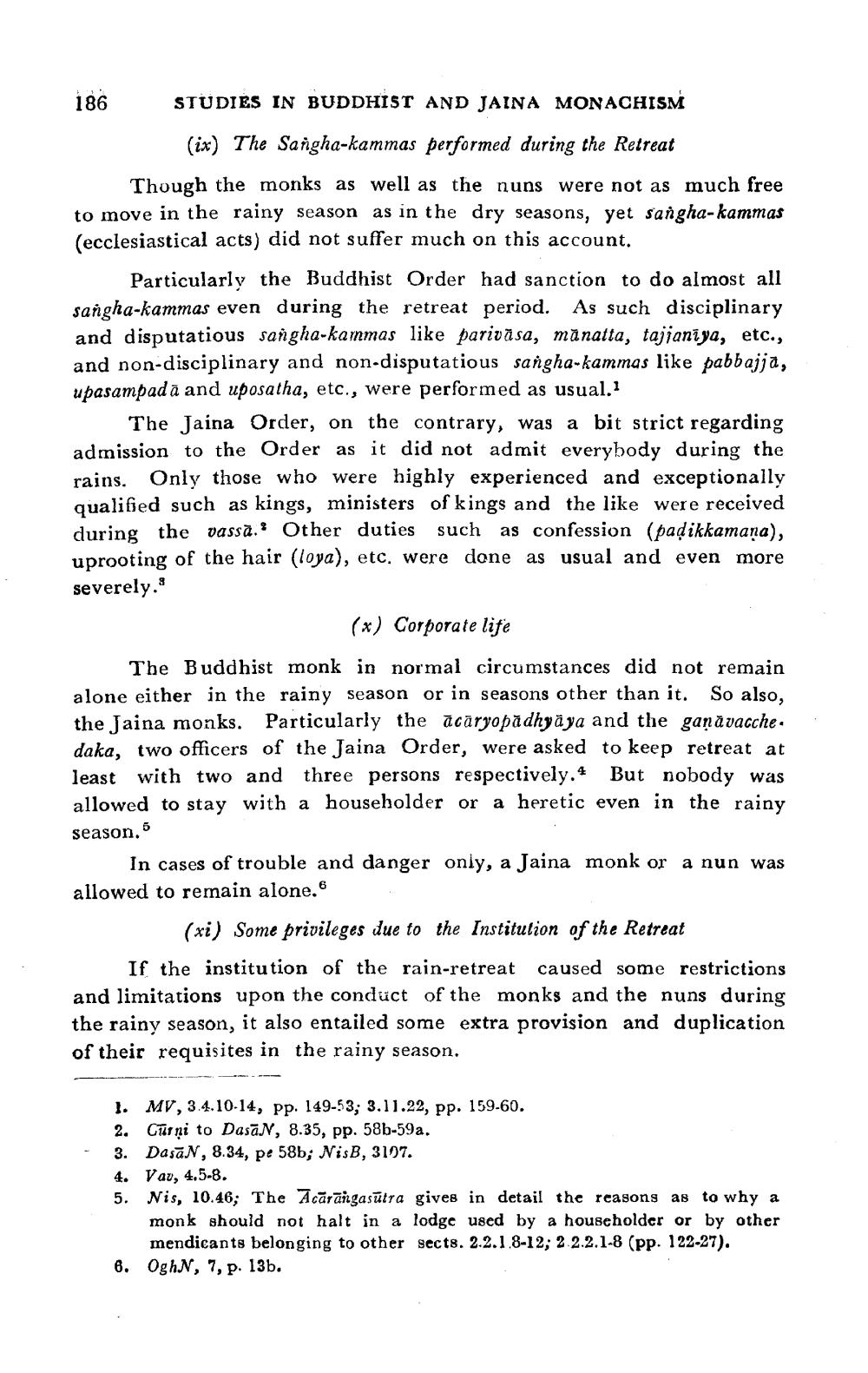________________
186
STUDIES IN BUDDHIST AND JAINA MONACHISM
(ix) The Sangha-kammas performed during the Retreat
Though the monks as well as the nuns were not as much free to move in the rainy season as in the dry seasons, yet sangha-kammas (ecclesiastical acts) did not suffer much on this account.
Particularly the Buddhist Order had sanction to do almost all sangha-kammas even during the retreat period. As such disciplinary and disputatious sangha-kammas like parivāsa, mănatta, tajjanīya, etc., and non-disciplinary and non-disputatious sangha-kammas like pabbajja, upasampada and uposatha, etc., were performed as usual.1
The Jaina Order, on the contrary, was a bit strict regarding admission to the Order as it did not admit everybody during the rains. Only those who were highly experienced and exceptionally qualified such as kings, ministers of kings and the like were received during the vassa.! Other duties such as confession (padikkamana), uprooting of the hair (loya), etc. were done as usual and even more severely.
(x) Corporate life
The Buddhist monk in normal circumstances did not remain alone either in the rainy season or in seasons other than it. So also, the Jaina monks. Particularly the acāryopadhyaya and the gaņā vacche. daka, two officers of the Jaina Order, were asked to keep retreat at least with two and three persons respectively. But nobody was allowed to stay with a householder or a heretic even in the rainy season. 5
In cases of trouble and danger only, a Jaina monk or a nun was allowed to remain alone.
(xi) Some privileges due to the Institution of the Retreat If the institution of the rain-retreat caused some restrictions and limitations upon the conduct of the monks and the nuns during the rainy season, it also entailed some extra provision and duplication of their requisites in the rainy season.
1. MV, 3.4.10.14, pp. 149-53; 3.11.22, pp. 159-60. 2. Gurni to Dasās, 8.35, pp. 58b-59a. 3. DasaN, 8.34, pe 58b; NisB, 3107. 4. Vav, 4,5-8. 5. Nis, 10.46; The Acarangasūtra gives in detail the reasons as to why a
monk should not halt in a lodge used by a householder or by other
mendicants belonging to other sects. 2.2.1.8-12; 2 2.2.1-8 (pp. 122-27). 6. OghN, 7, p. 13b.




